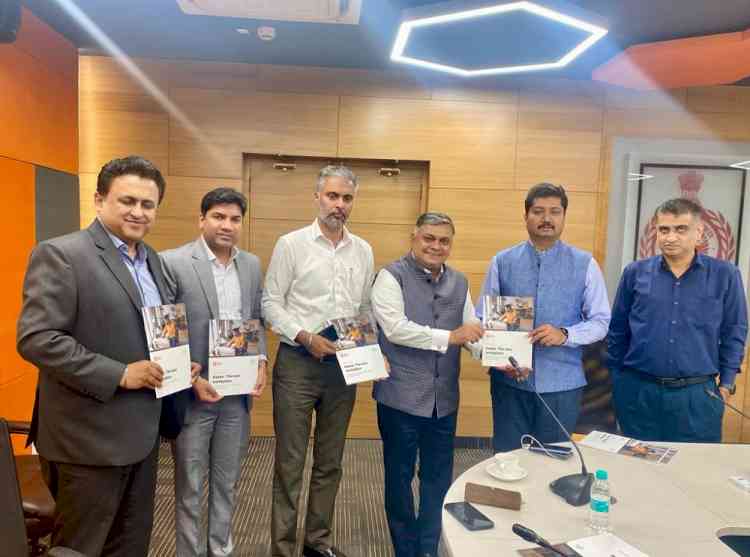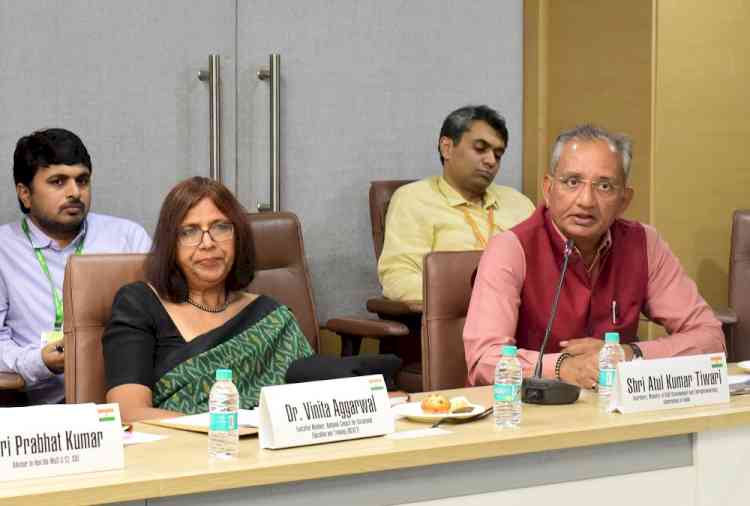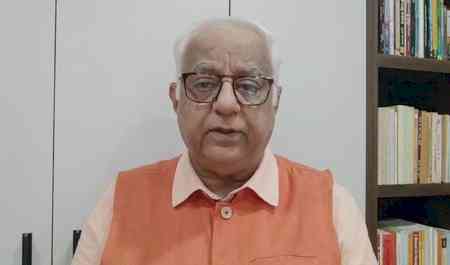FICCI in partnership with JLL suggests ‘Affordable workplace for Grey Office Market’ to government of Haryana
The white paper titled “Home: The New Workplace’ was presented to K Makrand Pandurang, Director General and Special Secretary, Town & Country Planning, Haryanaand Vishal Bansal, Principal Accountant General IA&AS (Audit), Haryana.

Chandigarh, June, 2022: Federation of Indian Chambers of Commerce and Industry with its knowledge partner JLL (Jones Lang LaSalle) has presented research to the government of Haryana that highlights the ‘Grey office market and or work from home’ in the state to regulate as a formal and authorised sector. Keeping in line with the Government of India’s Skill India and Start-up mission, the study has suggested significant measures backed by the survey and analysis of the employee’s perception in the recent times to incorporate their HOME, as the formal and affordable workplace.
The delegation led by Vineet Nanda, Chairman - Regional Urban Infra Committee, FICCI and Director Sales & Marketing, Krisumi Corporation presented the white paper titled ‘Home: The New Workplace’ to K Makrand Pandurang, Director General and Special Secretary, Town & Country Planning, Haryana and Vishal Bansal, Principal Accountant General IA&AS (Audit), Haryana.
Vineet Nanda along with G.B Singh, Regional Head, FICCI briefed them on the changing dynamics of workspaces post-pandemic and recommended reframing and legalising the grey office market in a systematic manner. The move will contribute to the formal economy of the state in the form of an increase in GST and property tax collection as well as improving real estate bylaws. Grey office market are informal spaces operating from home-based setups primarily used by small-scale start-ups, unorganised workers, and the unemployed/remote workforce. As per Ministry of Labour and Employment data, approximately 27 Crores of people have registered themselves as part of the unorganised workforce.
Praising the white paper, Pandurang, Director General and Special Secretary, Town & Country Planning, Haryana said “FICCI / JLL white paper presented is worth introspection and step in the right direction. Haryana government supports start-up ecosystem in the state and in this regard, we would like to probe further with FICCI/JLL to understand the need gap. We encourage the youth of Haryana and of the entire nation to join the formal sector of business & commerce and set up their start-up business units in the state of Haryana. The PM’s vision on the creation of skilled India along with this initiative by CM, Haryana, will give a fillip to the state’s economic growth.”
The move is predicted to benefit over 700 start-ups and six lakh unemployed professionals in Haryana. The benefits of the policy suggestion include compatible land uses by discouraging intensive commercial developments, legalising unorganised commercial activities, less or no travel hence reduced carbon footprints and various benefits to the government in form of revenue collection by GST, property taxes adding another income source to contribute in the economy of the state.
“Since the onset of the pandemic, we have witnessed a significant number of start-ups operating from informal spaces, primarily from home, and unemployed people getting involved in home-based part-time businesses. ‘Work at home’ is the new normal. I feel the move is cost-effective, time-saving, and full of opportunities, especially for entrepreneurs and unemployed people. The policy will propel the formal economy of Haryana and help improve the real estate bylaws,” said Vineet Nanda. Hefurther remarked, “I am confident that the policy will be well received by the public of Haryana and will also inspire other governing bodies of states as well.”
“Advent of hybrid workspaces and changing work dynamics in India has accentuated the need for more interactive space than pure commercial and residential use. The creation of affordable, efficient workspaces and interactive land uses will improve the environment for the unorganized commercial sector, home-based workers and new-age start-ups. It will not only benefit the urban infrastructure sector at large but will also move towards the creation of more entrepreneurs, jobs and better work-life quality.
Around fifteen lakh of Haryana’s informal workforce is working from unregulated home-based establishments. The absence of inclusive policies that cater to both the workers, enterprises and industry at large has only accentuated the problem. There is a dire need for all stakeholders to work towards inclusive regulatory and policy changes and think beyond WFH” - Akash Bansal, Senior Director & India Head - Consulting, JLL


 City Air News
City Air News 








